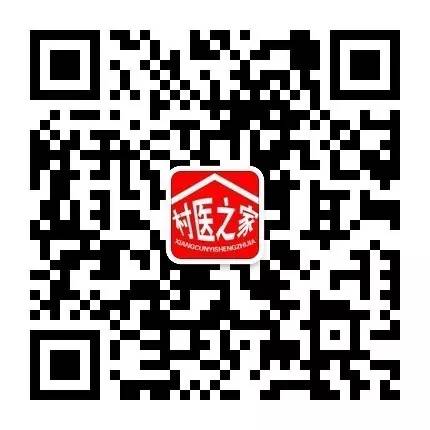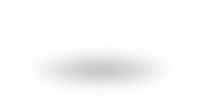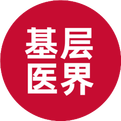
How to Properly Take Traditional Chinese Medicine Decoctions
Timing of Medication
The timing of taking medicine should be determined based on the condition. Generally, for diseases affecting the heart and lungs, it is advisable to take the medicine after meals; for diseases affecting the bladder and intestines, it is better to take it before meals. Heat-clearing and detoxifying medicines, laxatives, and tonics should be taken on an empty stomach, as the stomach is empty and can absorb them more easily.
○ On an Empty Stomach: Taking medicine on an empty stomach means taking it 1 hour before breakfast or 1 hour after dinner. Tonic decoctions should be taken on an empty stomach in the morning for optimal absorption. Medicines used for expelling parasites or treating blood vessel diseases in the limbs should also be taken on an empty stomach to allow the medicine to quickly enter the intestines and maintain a high concentration for rapid efficacy.
○ Before Meals: Generally, take the medicine 30-60 minutes before meals. Medicines for treating liver and kidney deficiency, gastrointestinal diseases, and conditions below the waist should be taken before meals, as the empty stomach allows the medicinal properties to be delivered effectively, enabling the liquid to directly contact the digestive tract mucosa, thus being absorbed more efficiently without being diluted by food in the stomach.
○ Between Meals: This means taking medicine between two meals to avoid food interfering with the medicine. Medicines for treating spleen and stomach diseases should be taken between meals.
○ After Meals: Generally, take the medicine 15-30 minutes after meals. This is suitable for conditions affecting the heart, lungs, and upper gastrointestinal tract, or for medicines that may irritate the digestive tract or have significant toxicity, to avoid rapid absorption that could lead to adverse reactions.
○ Before Sleep: Generally, take the medicine 15-30 minutes before sleep. Medicines that tonify the heart and spleen, calm the spirit, promote sleep, and delay aging, as well as those for stagnation and chest disorders, should be taken while lying flat after taking the medicine. For conditions affecting the head, mouth, or ears, one should lie without a pillow after taking the medicine. For conditions affecting the left or right ribs, the sleeping position should be chosen based on the ascending or descending nature of the medicine; if the medicine is uplifting, lie on the healthy side; if it is descending, lie on the affected side.
○ Overnight Doses: This mainly refers to antiparasitic medicines, which should be taken once before sleep and again on an empty stomach the next morning to ensure the parasites are killed and expelled. By mastering these methods, one can better utilize the medicinal properties for optimal therapeutic effects.
Precautions
Regardless of whether taken before or after meals, there should be a gap of about 1 hour between taking medicine and eating to avoid affecting the digestion and absorption of the medicine and its efficacy.
For young children or patients who have difficulty taking medicine due to vomiting, the medicine can be divided into multiple doses. For children taking TCM decoctions, it is advisable to use a method of small amounts taken multiple times, avoiding feeding during the hour before and after meals. Generally, it is suitable to administer the medicine 1 hour after breakfast, lunch, and dinner, and before sleep, totaling four doses. For infants, the daily dose can be divided into multiple small doses.
Special medicines should be taken in special ways; for example, digestive aids should be taken after a small amount of food to enhance efficacy; antiparasitic medicines should be taken with some sugar water beforehand to improve the effect; purgatives should be stopped immediately after a bowel movement; sedatives should be taken 2 hours before sleep; and antimalarial medicines should be taken 2 hours before an attack.
After taking heat-clearing and exterior-releasing medicines, one should avoid wind and observe for sweating and changes in body temperature and pulse; after taking laxatives and antiparasitic medicines, monitor bowel movements; and menstrual-regulating medicines should be taken before menstruation.
Temperature of the Medicine
Decoctions for treating general diseases should be taken warm; for special treatment needs, they should be taken according to specific methods. Generally, medicines that regulate qi, invigorate blood, tonify blood, cool blood, and stop bleeding should be taken hot, as sweating medicines must be taken hot to enhance their efficacy. Detoxifying agents should be taken cold to facilitate the expulsion of toxins; taking them hot may increase the spread of toxins, so heat-clearing herbs are best taken after cooling.
Dosage of the Medicine
Generally, a dose of 150 ml is advisable, but there are exceptions for certain conditions.
For patients with fever taking heat-clearing and detoxifying agents, a slightly larger volume may be taken to enhance efficacy; for thirst-quenching medicines, the volume should also be increased and can be taken frequently as a substitute for tea.
Stronger individuals may take larger doses, while weaker individuals, such as children and severely ill patients, should take smaller doses. Generally, children under 1 year should take 1/5 of the adult dose, 1-3 years should take 1/4, 4-7 years should take 1/3, 8-10 years should take 1/2, and those over 10 years can take the adult dose.
Frequency of Medication
Generally, decoctions should be taken twice a day, in the morning and evening; heat-clearing and detoxifying medicines can be taken 3-4 times a day. Tonifying medicines should be taken once in the morning and once in the evening, while sweating medicines can be taken an additional 2-3 times.
Dietary Restrictions
During the period of taking TCM, dietary restrictions should be observed, avoiding raw, cold, greasy, and spicy foods, and there is no need to supplement with additional vitamins.
Generally, patients with heat-related diseases should avoid spicy, oily, and hard-to-digest foods and alcohol; those with cold-related diseases should avoid raw and cold foods; patients with jaundice, allergic diseases, abscesses, tumors, and certain skin diseases should avoid fish, shrimp, and other strong-smelling foods and irritants; patients with edema should avoid salt; and those taking blood-tonifying medicines should avoid tea.
Author: Xue Xinxin, Pharmacy Department (Traditional Chinese Medicine Pharmacy), Beijing Chaoyang Hospital, Capital Medical University
Typesetting: Liu Qinghua
Original Authorization ServiceFor inquiries, please contact 010-58302828-6872 or [email protected]. Unauthorized reproduction will be legally pursued.
Business NegotiationFor inquiries, please contact 010-58302828-6872 or [email protected].
Recommended Hot Articles
Observations
Children are prone to allergies, experts explain
Hot Articles
Beware of these three major misconceptions about hypertension medication!
Must Know
Common causes of sudden cardiac death in children and first aid
Questions
Can gout patients eat legumes?
Benefits
Discussing cough diagnosis and treatment strategies with grassroots doctors
Quick Look
What to do when gastrointestinal discomfort is evident, but tests show no abnormalities?
Disclaimer
1. This article only represents the author’s personal views and is not related to this platform.
2. If there is any infringement, please contact the editor for timely deletion!
Village Doctor’s HomeWeChat ID: zgsqys-cyzj
 Long press to recognize the QR code to follow me
Long press to recognize the QR code to follow me

